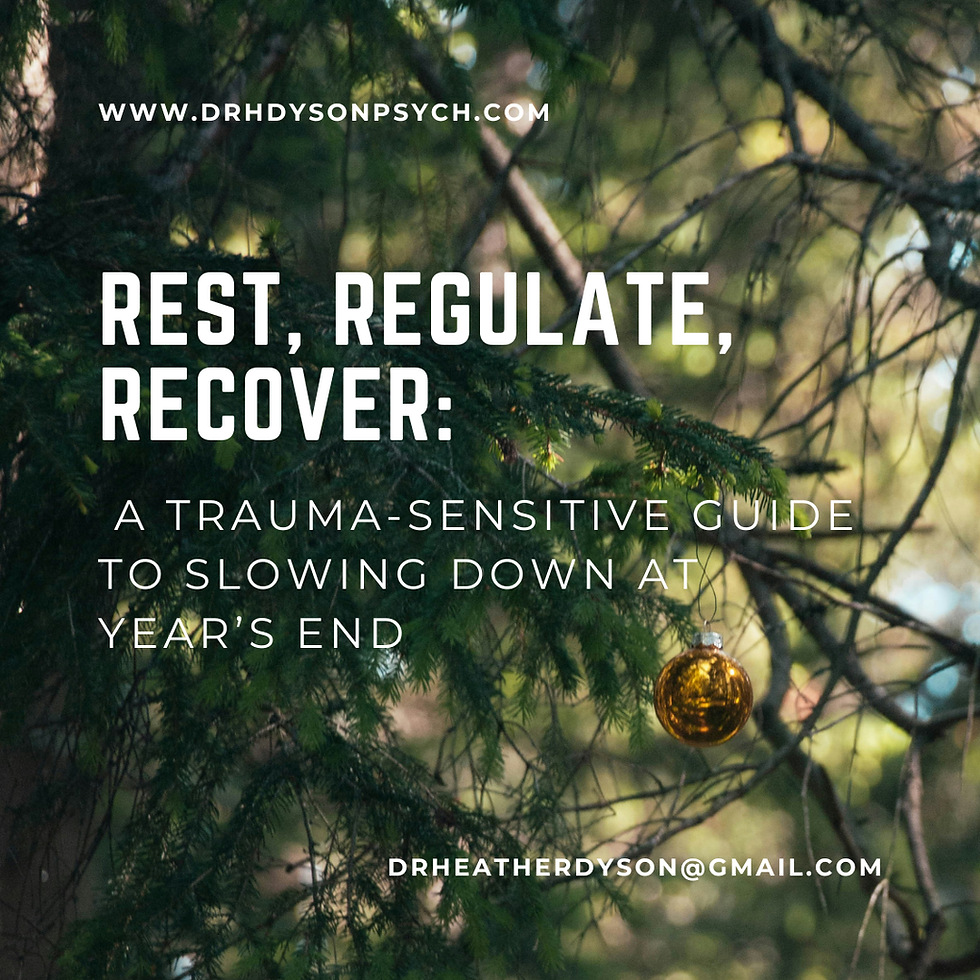What are PTSD Flashbacks?
- Dr Heather Dyson

- Mar 3, 2023
- 2 min read
Flashbacks are a symptom of post-traumatic stress disorder (PTSD), which is a mental health condition that can develop after experiencing or witnessing a life threatening event, such as a car accident or surviving an assault. PTSD flashbacks are a type of intrusive memory, where the individual relives aspects of the traumatic event as if it were happening again. Subsequently, the individual may experience the same intense physiological and emotional experiences that they had at the time of their trauma.

Consequently, PTSD flashbacks are extremely distressing and can interfere with an individual's ability to function in daily life. They can make it difficult to concentrate, work, or socialise, and can cause sleep disturbances or nightmares. In severe cases, they can lead to avoidance behaviours, where the individual tries to avoid anything that might trigger a flashback.
There are several treatment options available for PTSD flashbacks, including trauma focused cognitive-behavioural therapy (TF-CBT), EMDR, and medication. TF-CBT is a type of therapy that helps individuals identify and change negative thought patterns and behaviours related to their PTSD symptoms. During therapy, individuals initially work with a therapist to develop coping strategies for managing flashbacks, such as grounding techniques or relaxation exercises. This “stabilisation phase” is in preparation for the next phase of therapy, which focuses on re-living the event”. According to TF-CBT, it is the elaboration and contextualisation of the trauma memory that helps individuals to process their trauma, thereby reducing the distress experience when the memory comes to mind.
Medications such as selective serotonin reuptake inhibitors (SSRIs) or benzodiazepines may also be prescribed to help manage symptoms of PTSD, including flashbacks. However, medication is typically used in combination with therapy and other forms of support, as it does not address the root cause of the PTSD.
Here are six strategies that may help you to better manage flashbacks.
Grounding Techniques: Practice grounding techniques to bring yourself back to the present moment. Focus on your senses and observe your surroundings. For example, name five things you see, four things you feel, three things you hear, two things you smell, and one thing you taste. For more ideas, visit this website https://www.healthline.com/health/grounding-techniques
Abdominal Breathing: Practice deep breathing exercises to help reduce anxiety and promote relaxation. Breathe in slowly through your nose, hold for a few seconds, and exhale slowly through your mouth. To learn more, visit this website https://www.physio-pedia.com/Diaphragmatic_Breathing_Exercises
Progressive Muscle Relaxation: Practice muscle relaxation techniques by tensing and relaxing different muscle groups in your body. This can help reduce tension and promote relaxation. To learn more, watch this video https://www.youtube.com/watch?v=ihO02wUzgkc
Create a Safety Plan: Create a safety plan to help you feel more in control during flashbacks. This can include strategies like calling a friend, leaving the environment, or engaging in a calming activity.
Seek Support from Loved Ones: Talk to loved ones about what you're going through and seek their support. They can help you feel less alone and provide comfort during difficult times.
Talk to a Therapist: Consider talking to a therapist who specializes in trauma or PTSD. A therapist can provide support and help you develop coping strategies.
Photo by Vinicius Marques on Unsplash




Comments